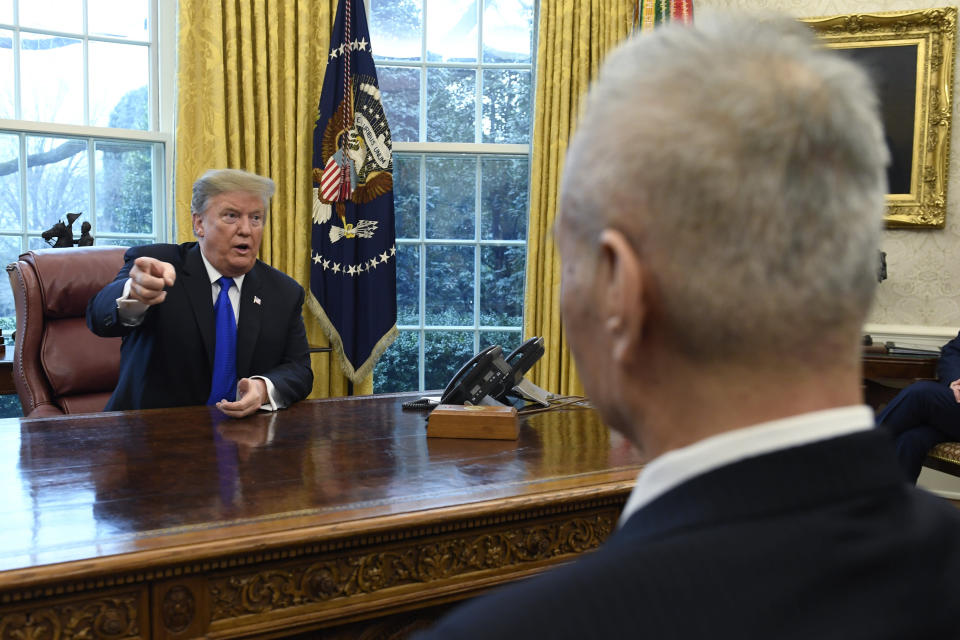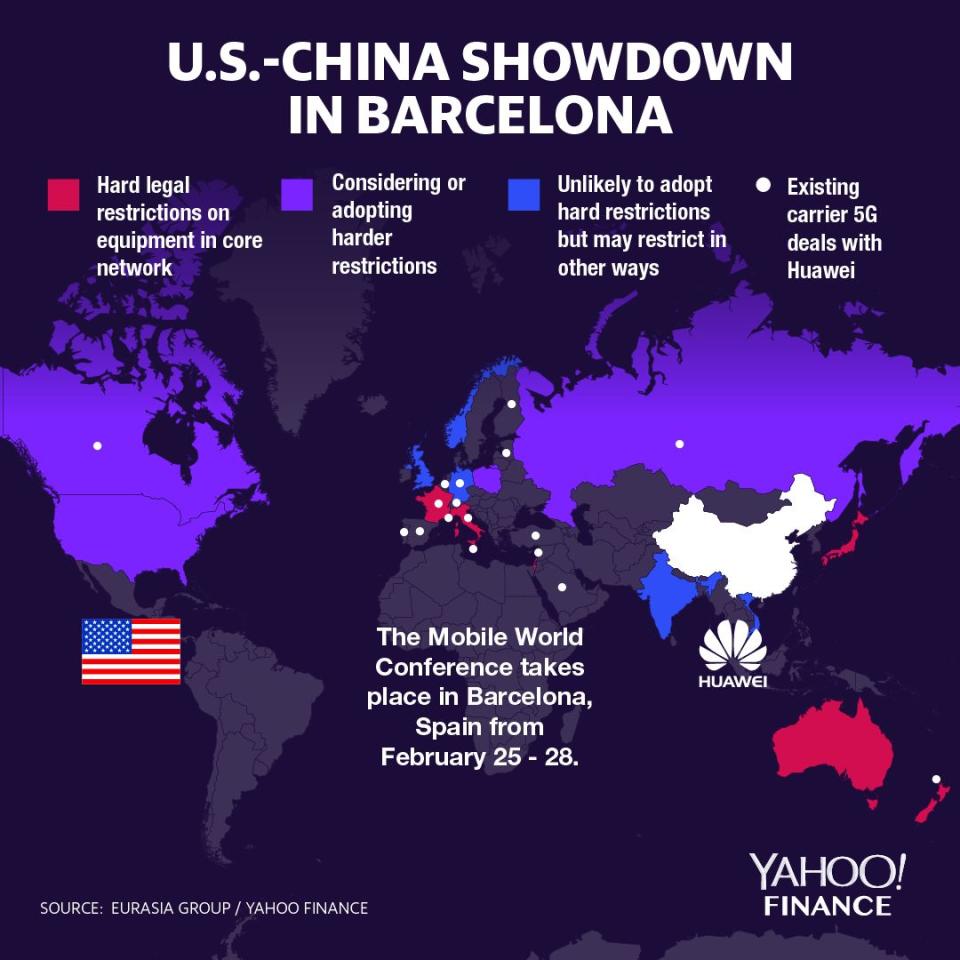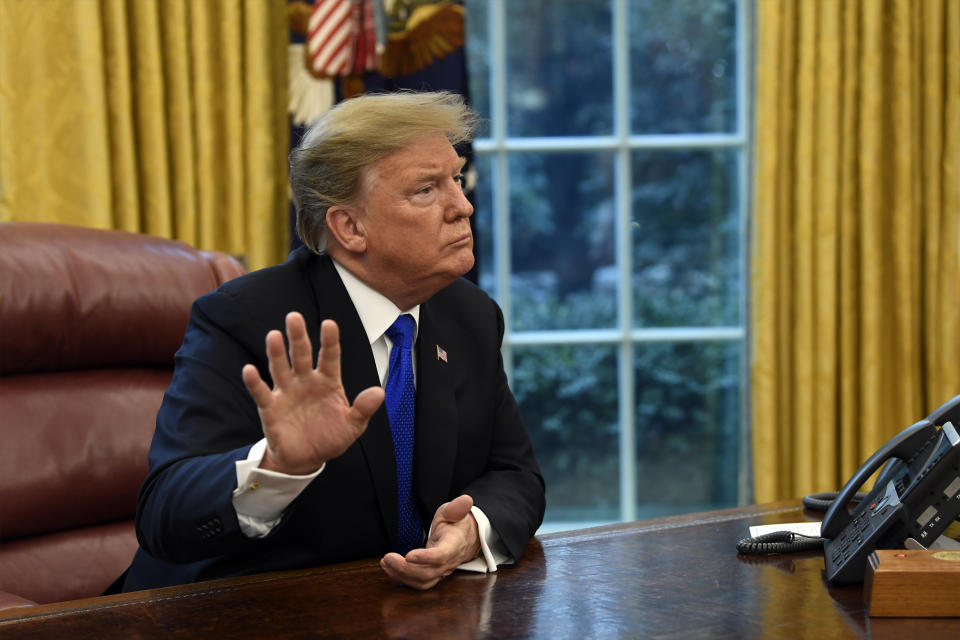Analyst: There's a 35% chance U.S.-China trade talks break down
The trade war between the U.S. and China isn’t over just yet.
The two countries have been negotiating over tariffs since the G20 summit in December 2018. A formal agreement may be reached between President Trump and Chinese President Xi Jinping as soon as March 27, the Wall Street Journal reported.
However, Jeff Wright, a U.S. analyst for Eurasia Group, wrote in a note that there is a 35% chance that there will be a delay or breakdown in trade talks.
‘The risks of disappointment are probably increasing’
Wright told Yahoo Finance’s On the Move that a number of things could trigger the setback, but “the most likely ones are probably Huawei and the various tech disputes that are emerging between the U.S. and China.”

“The current momentum behind a deal does not reduce the risk of major frictions once the two sides turn towards implementation,” Wright’s note said. “The risks of disappointment are probably increasing, given Beijing’s new commitments on structural issues but uncertain appetite to implement these — especially on the U.S. timeline. The practical and political challenges in China are immense.
Part of the tension between the U.S. and China is over allegations of China committing intellectual property theft. U.S. Trade Representative Robert Lighthizer has argued that China has practiced “unfair, unreasonable, and market-distorting practices,” which is what led to the U.S. imposing tariffs.
“Stronger protection of IP and greater transparency in use of subsidies will require systemic changes that will reach all the way down to the local level,” the Eurasia note stated. “A number of U.S. demands are likely to run into bureaucratic inertia, vested interests, and Xi’s reluctance to relax Party control over legal and regulatory decisions, including to protect domestic firms in sensitive and strategic sectors.”

The Department of Justice (DOJ) filed criminal charges against Chinese company Huawei — “alleging theft of trade secrets, bank and wire fraud, violations of Iran sanctions, and conspiracy to commit money laundering” — but has yet to provide public evidence.
“There’s a lot of other things — geopolitical issues in North Korea, for example, or the South China Sea,” Wright said. “Or, it could be as simple as Trump deciding, as he has in the past, that he doesn’t want to pursue this deal. We were very close in May of last year to where we are now, and Trump backed away from that deal, so that’s always a possibility as well.”
‘It’s not done‘
Trump previously showed signs of reaching a deal with Chinese officials back in May 2018, until his supporters and members of Congress claimed he was capitulating. Senator Marco Rubio (R-F.L.) had tweeted: Sadly #China is out-negotiating the administration & winning the trade talks right now. They have avoided tariffs & got a #ZTE deal without giving up anything meaningful in return by using N.Korea talks & agriculture issues as leverage. This is #NotWinning.

Since then, the U.S. and China have been in a tit-for-tat with tariffs, with American farmers being among those hit the hardest in the spat.
JJ Kinahan, chief market strategist at TD Ameritrade, cautioned people about making the assumption that a deal is done until the actual news is announced.
“It’s not done,” he told On the Move. “How many times, particularly when it comes to governments and negotiations, do you see things either A) fall apart at the last minute?” or B) change their complexion at the last minute?”
Adriana is an associate editor for Yahoo Finance. Follow her on Twitter @adrianambells.
READ MORE:
Trump’s farmer bailout just hit $7.7 billion – but 'it no way makes us whole'
A U.S.-China trade deal by March 1 deadline is 'really far-fetched': Strategist
Follow Yahoo Finance on Twitter, Facebook, Instagram, Flipboard, LinkedIn, YouTube, and reddit.
